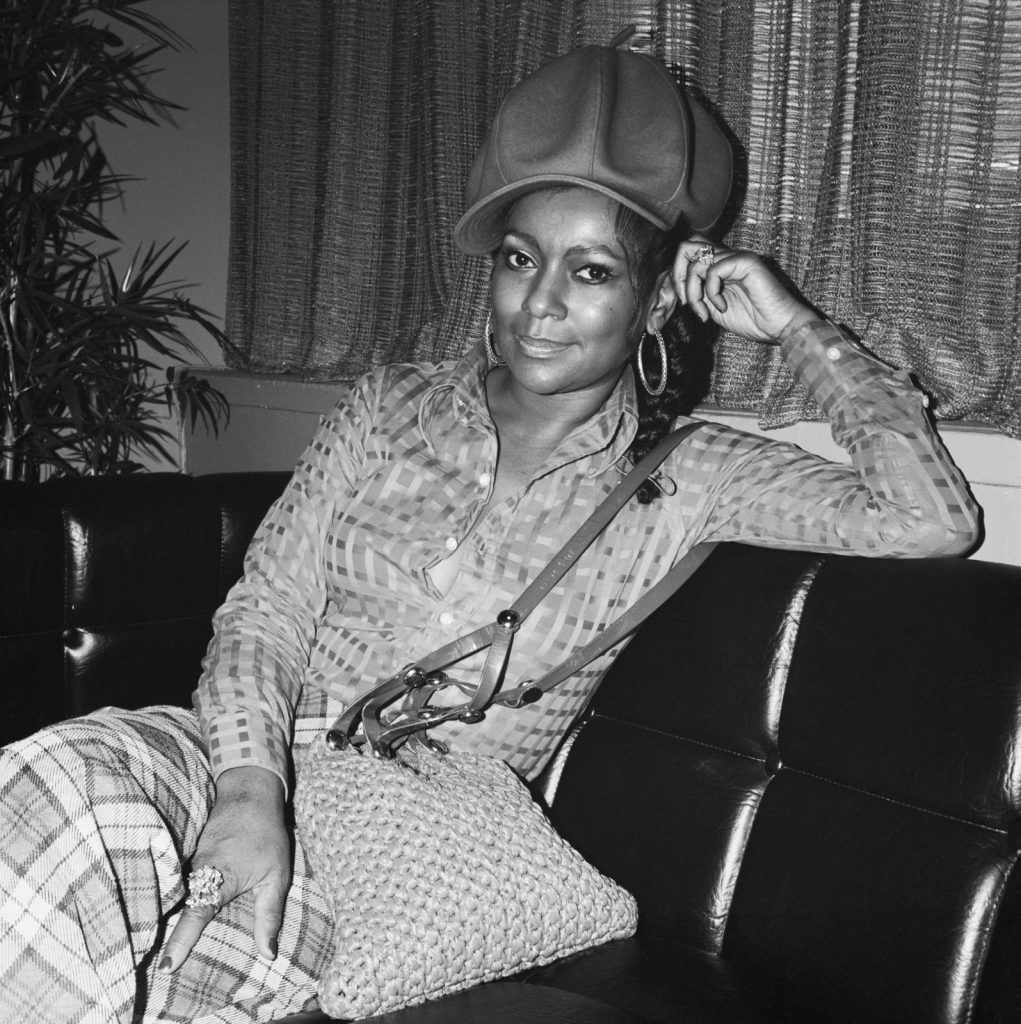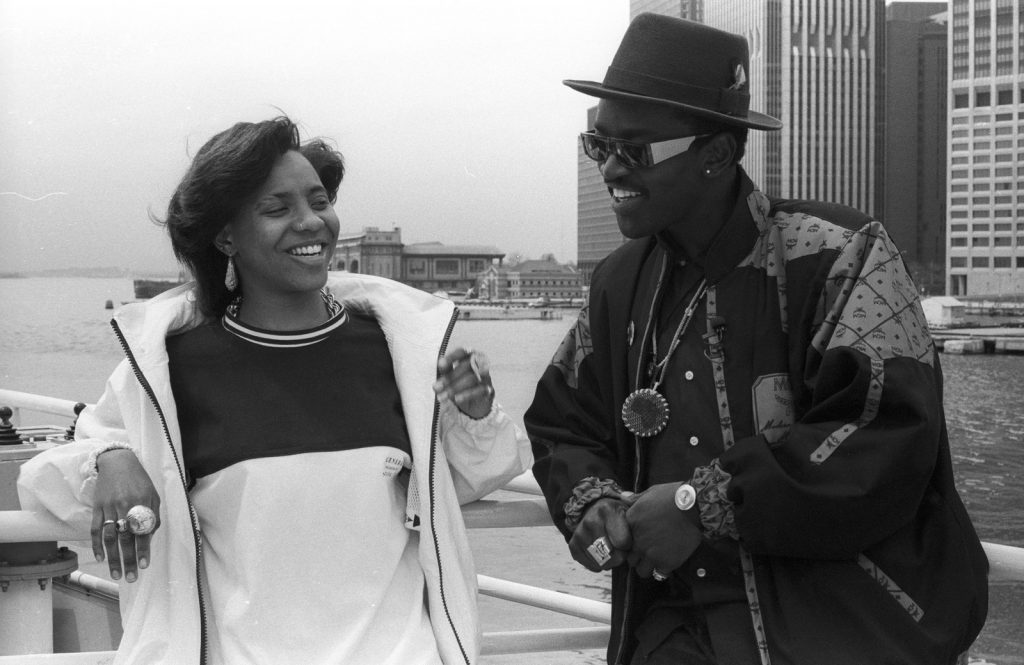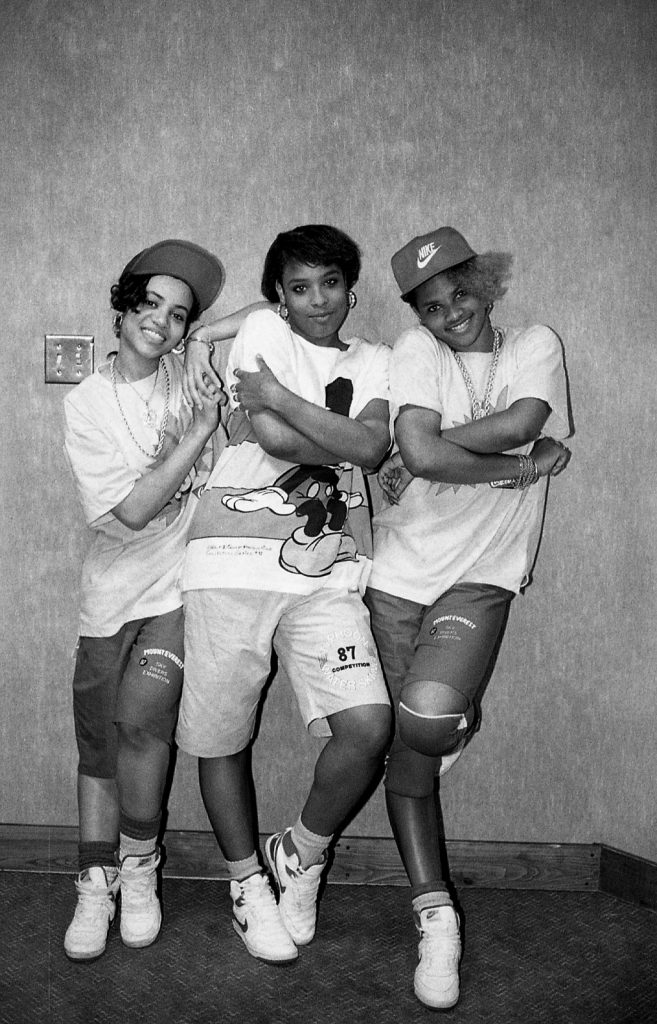Hip-hop is much more than a genre. Hip-hop is a culture that has influenced art, dance, fashion, language — and other music genres. At the forefront of this cultural phenomenon are women, black women specifically.
Discussions about women and hip-hop are often centred on the representation of black women and the sexist messages perpetuated by many of the musicians. Although these social critiques are valid, we also need to celebrate the black women who are among the architects of hip-hop.
This year marks 50 years since hip-hop was born. Its forebears are debatable — Fab 5 Freddy, Marly Marl and Kurtis Blow are often mentioned. There isn’t much about the women pioneering in the genre.
However, in each decade of its existence, there have been women blazing paths and putting their indelible mark on this male-dominated genre.
The pioneers
Hip-hop was born in the Bronx, New York, in 1973 and it didn’t take long for the world to connect to this catchy, defiant, fresh way of musical expression.
In South Africa, Yo Girls was the first all-female rap group. The eight-member outfit from Cape Town was established in the mid-1980s and ran through the early 1990s.
Yo Girls never got to record, but they did pave the way for women in the genre, through performing at The Base, a popular Cape Town club where rappers, such as Prophets of the City, performed in the 1980s.
In the United States, as hip-hop was growing and finding its audience, one of the trailblazers was Sylvia Robinson who began her career as a singer in the 1950s and by the late 1970s had stepped into the record industry as founder and CEO of Sugar Hill Records.
 And here’s to you: Sylvia Robinson, founder and chief executive of Sugar Hill Records, which produced hip-hop’s first successful mainstream song. Photo: Don Paulsen/Michael Ochs Archive/Getty Images
And here’s to you: Sylvia Robinson, founder and chief executive of Sugar Hill Records, which produced hip-hop’s first successful mainstream song. Photo: Don Paulsen/Michael Ochs Archive/Getty Images
The label was responsible for the success of hip-hop’s first mainstream song Rapper’s Delight by The Sugarhill Gang. Robinson led the way in bringing hip-hop to the world and went on to release records for hip-hop legends Grandmaster Flash and the Furious Five; she also gave opportunities to other women.
Robinson signed the rap group Funky 4+1, the first to have a female MC — Sha Rock, popularly known as “Mother of the Mic”.
During its earliest days hip-hop was not taken seriously by the older generation and record companies; artists had to fight for recognition.
“They felt as though this was something that just was never going to go any place,” MC Sha Rock said.
“I can tell you how we were told as young teenagers that this was just a fad. It wasn’t until corporate American radio stations saw that these young kids with little or no resources created something out of nothing.”
In the early years of hip-hop, woman MCs moved away from rapping about drugs and gang violence and led a movement of female empowerment. MCs like Queen Latifah and MC Lyte emerged in the late 1980s and changed the game. Women began pushing back and letting their voices be heard.
The movement might have begun as a pushback to the narrative around black women in the hood but that enriched the culture. Suddenly, women were rapping about their experiences and adding layers to the growing hip-hop phenomenon.
Depending on how you felt, you would dress the part; make sure the world knew who you represented. If you were feeling Latifah and all about the U.N.I.T.Y., you wore a dashiki and headwrap or you wore baggy jeans and short hair like MC Lyte.
Mad bars and sex appeal
 In the beginning: MC Lyte with Fab 5 Freddy. (Getty Images)
In the beginning: MC Lyte with Fab 5 Freddy. (Getty Images)As the world changed, hip-hop became an enterprise and its influence was plain to see. Women’s voices in the game became hard to ignore and with the growth of the female empowerment movement came the rise of the female sexuality movement. In hindsight, women joining the rap game was a natural progression but this bold new movement was met with criticism. Hip-hop fans argued that women wearing less diluted the message of female empowerment.
On the front lines of this sexual revolution was the all-woman group Salt-N-Pepa. They released their first studio album in 1986, becoming the first female group to sell more than a million records. They shot to success with massive hits like Push It (who can forget Kate Hudson and Ginnifer Goodwin’s best friend dance in 2011’s Something Borrowed) and Let’s Talk About Sex.
Salt-N-Pepa made a name for themselves by rapping about sex and wearing revealing clothing at a time when woman MCs dressed more modestly.
“We were owning it and inspiring a lot of women. A lot of music had a message. And the thing that really motivated us during that time was how women would come to us and say we inspired them. We were encouraged by the fact that we were actually impacting a generation of women,” group member Spinderella told Billboard in 2014.
 Fab five: The rap group Funky 4+1, signed by Sylvia Robinson of Sugar Hill Records, was the first to have a woman MC — Sha Rock — who was known as “Mother of the Mic”.
Fab five: The rap group Funky 4+1, signed by Sylvia Robinson of Sugar Hill Records, was the first to have a woman MC — Sha Rock — who was known as “Mother of the Mic”.Salt-N-Pepa set the stage for rappers like Lil’ Kim and Foxy Brown to take sex appeal in the 1990s to a whole new level.
In 1996, Lil’ Kim changed the game with her certified double-platinum debut album Hardcore. No one brought sex appeal to hip-hop like the original Queen Bee — she was sex positive before mainstream said it was cool. While fashionable, unapologetic and sexy, Lil’ Kim trumps her competitors because she can hold her own on the mic.
There are still no female rappers capable of going toe-to-toe with her today. Lil’ Kim came up at a time when female MCs had a lot to prove — especially to their male counterparts — and she did. She inspired a new generation of sex-positive rappers, such as Trina and Eve. Lil’ Kim also made a name for herself as a fashion icon — cue that purple pasty moment with Diana Ross at the 1999 MTV Video Music Awards.
“It’s always been hand in hand,” she said about the relationship between fashion and hip-hop.
 Sugar and spice: Salt, DJ Spinderella and Pepa of the group Salt-N-Pepa in 1987. Photo: Raymond Boyd/Getty Images
Sugar and spice: Salt, DJ Spinderella and Pepa of the group Salt-N-Pepa in 1987. Photo: Raymond Boyd/Getty Images
“I’m one of the people who set that trend by being embraced by Donatella, Marc Jacobs, Alexander McQueen and John Galliano. They embraced me quickly in my career and it was at a time where a lot of musicians were not being embraced by the major designers. I’m one of the first ones, next to Diddy,” she told Hello Beautiful.
Game changers
While woman MCs are always jostling for respect and recognition, constantly being pitted against each other for their physical attributes, there are artists who have come in and turned the tables in hip-hop. Names that immediately come to mind are Missy Elliott and Lauryn Hill. These icons are celebrated across genres for their impact on pop culture as a whole.
Multi award-winning Missy Misdemeanor Elliott is a groundbreaking musician, producer and now music director. She has been making ahead-of-the-curve music for more than 20 years. The video for her single The Rain (Supa Dupa Fly), released in 1997, in which she wears an oversized black suit, is still one of the best ever created.
“To me, the outfit was a way to mask my shyness behind all the chaos of the look. Although I am shy, I was never afraid to be a provocative woman. The outfit was a symbol of power.
“I loved the idea of feeling like a hip-hop Michelin woman. I knew I could have on a blow-up suit and still have people talking. It was bold and different. I’ve always seen myself as an innovator and a creative unlike any other,” Missy told Elle Magazine.
MTV awarded her with the Video Vanguard Award in 2019 for Work It (2003). The award is presented for outstanding contributions and influence on music video and popular culture. Elliott became the first woman rapper to receive the honour.
the thing that really motivated us during that time was how women would come to us and say we inspired them
Missy is a game changer for her unique ability to portray black culture in a vibrant and joyful way while maintaining her stellar creativity.
Her collaboration with music producer Timbaland has been responsible for some of the biggest hits in hip-hop and R&B.
The MC-producer duo has worked with Aaliyah, Total and SWV. Recently, Missy has collaborated with artists such as Dua Lipa and Brazilian singer Anitta.
Singer-songwriter, actor and producer Hill is one of the most influential musicians of her generation. She rose to fame in the 1990s as an actor and a member of the Fugees.
It was her solo project The Miseducation of Lauryn Hill, released in 1998, that cemented her icon status. That album won her five Grammy Awards, unheard of at the time for a new artist and an artist in hip-hop and R&B.
Although she hasn’t given us much since, her last release was MTV Unplugged No 2.0 in 2002 where she performed new songs in an acoustic style to an astonished audience.
Sister power: (From top left) Foxy Brown on stage with Jay-Z, Lil’ Kim, Missy Elliott, Cape Town all-woman group Godessa and Lauryn Hill. Photos: Scott Gries/AFP, Paras Griffin/AFP, Frederick M Brown/AFP & Oli Scarff/AFP
Although Hill is now known for always being late for her concerts and her love-hate relationship with the industry, her impact is undeniable.
There were rumours of the Fugees going back on tour but they were quashed by band member Pras Michel’s alleged involvement in a money laundering scheme.
In South Africa, the Cape Town all-woman group Godessa changed the game. For a long time they were the only female voices in hip-hop in the country.
Their expression of the coloured woman’s experience was a breath of fresh air in the overwhelmingly male industry.
Made up of Shameema “Shame” Williams, Elouise “EJ” Jones and Bernadette “Burni” Amansure, the group gave us two records, Social Ills (2002) and Spillage (2004). They haven’t made any music since and there is no talk of a reunion.
The SA rap game has also been blessed with the likes of Rouge, Fifi Cooper and Nadia Nakai.
Leaders of the new school
Despite the fact that the number of woman rappers has increased, they still face the double standards of hip-hop, constantly having to prove themselves, although new school rap veterans like Nicki Minaj and Cardi B have broken boundaries and reached new heights with their multi-platinum-selling records.
They have paved the way for new artists such as Megan Thee Stallion, GloRilla, Latto and Coi Leray.
The beauty of female emcees is their ability to choose how they want to be portrayed, whether rapping about their sexuality like Megan or contributing to discussions on social justice like South African Gigi LaMayne with her 2018 song Fees Will Fall.
It’s clear female rappers have created a very lucrative road for new rappers to follow.